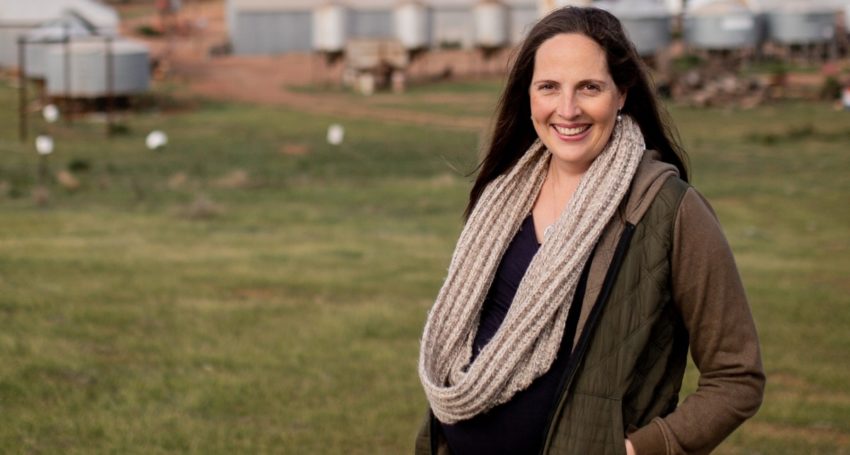Online mental health training helps farmers thrive in adversity
Health & Medical
A mental health program assisting regional farming families to manage stress and build resilience against the “uncertain burn” of drought has launched in South Australia.

Sign up to receive notifications about new stories in this category.
Thank you for subscribing to story notifications.

Rural clinical psychologist Stephanie Schmidt launched the ACTFORAG pilot program recently to support drought-affected farmers and their families to develop psychological skills that promote wellbeing.
The three-week program held over Zoom is based on Acceptance Commitment Training (ACT), a behaviour training focused on building skills in mindfulness – or living in the present – and letting go of chatter inside the mind.
Stephanie said ACT can teach participants to effectively deal with uncomfortable or negative thoughts or feelings, and live according to their values.
“It’s based around psychological flexibility – the ability to be in challenging situations and adapt to them as needed,” she said.
“It’s also drilling down and looking at what’s most important to us and what our values are, and making our decisions based on that rather than all the stuff that goes on inside our head.
“Instead of being driven by our thoughts and feelings, we can choose to be driven by what’s important to us, our values and the type of person we really want to be.”
Stephanie developed ACTFORAG after winning the 2020 SA AgriFutures Rural Women’s Award.
Living on a sheep and cropping farm at World’s End 30km from Burra the young mother-of-two (and a third child on the way) has experienced the effects of drought firsthand.
Running three farming properties across the Mid North and Mallee, Stephanie and her husband are in their third and fourth consecutive years of crop failure.
The wider Goyder area has also experienced below average rainfall, with the dry conditions taking a toll on local communities.
“The hard thing with drought is that it’s more of a hard, uncertain burn rather than something like a bushfire which is horrific and traumatic, and then you can move into recovery after it happens,” Stephanie said.
“With drought, it keeps on going and you’re not sure when it will end.
“For much of our area it’s still very drought affected. There are farms that are used to doing it tough and would have planned for dry years but the past three years have been extremely tough.
“It’s taken a toll on the community, with people withdrawing socially. It affects everyone differently so it’s really hard to know what’s going on behind closed doors.”
Aside from her own experiences with drought, Stephanie is also familiar with the struggle of post-natal depression, having gone through it following the birth of her first child.
She sees her lived experience with mental health issues combined with professional practice as a psychologist as an opportunity to provide preventative solutions to the community.
“Wait lists around clinical services around most of the state, or most of rural Australia are just too long,” Stephanie said.
“I hope that if people can build skills from the ground up we can reduce the pressures on those critical services up at the higher level.”
About 10 people participated in the first pilot program ACTFORAG, funded by Country SA Primary Health Network.
Sharon Honner, chair of Women Together in Learning – an organisation dedicated to inspiring women and agribusiness – was an ACTFORAG participant while also providing Stephanie with tech support and tips on running virtual sessions effectively.
She said the program allowed her to take a breath and spend time on herself.
“As I juggle work, volunteer roles and family, often I leave myself last in my list of priorities,” Sharon said.
“Steph’s program gave me permission to work on me and I thoroughly enjoyed the mix of practical tips, exercises, videos and small and large group discussions.”
With Stephanie expecting her third child in August, she will see how life settles down before continuing the pilot later this year or in early 2021.
“The longer-term view of the program is to develop it as a train the trainer program so that I can train other mental health workers, health professionals, or community members so they can run it and allow a wider reach across rural Australia,” Stephanie said.
Jump to next article



